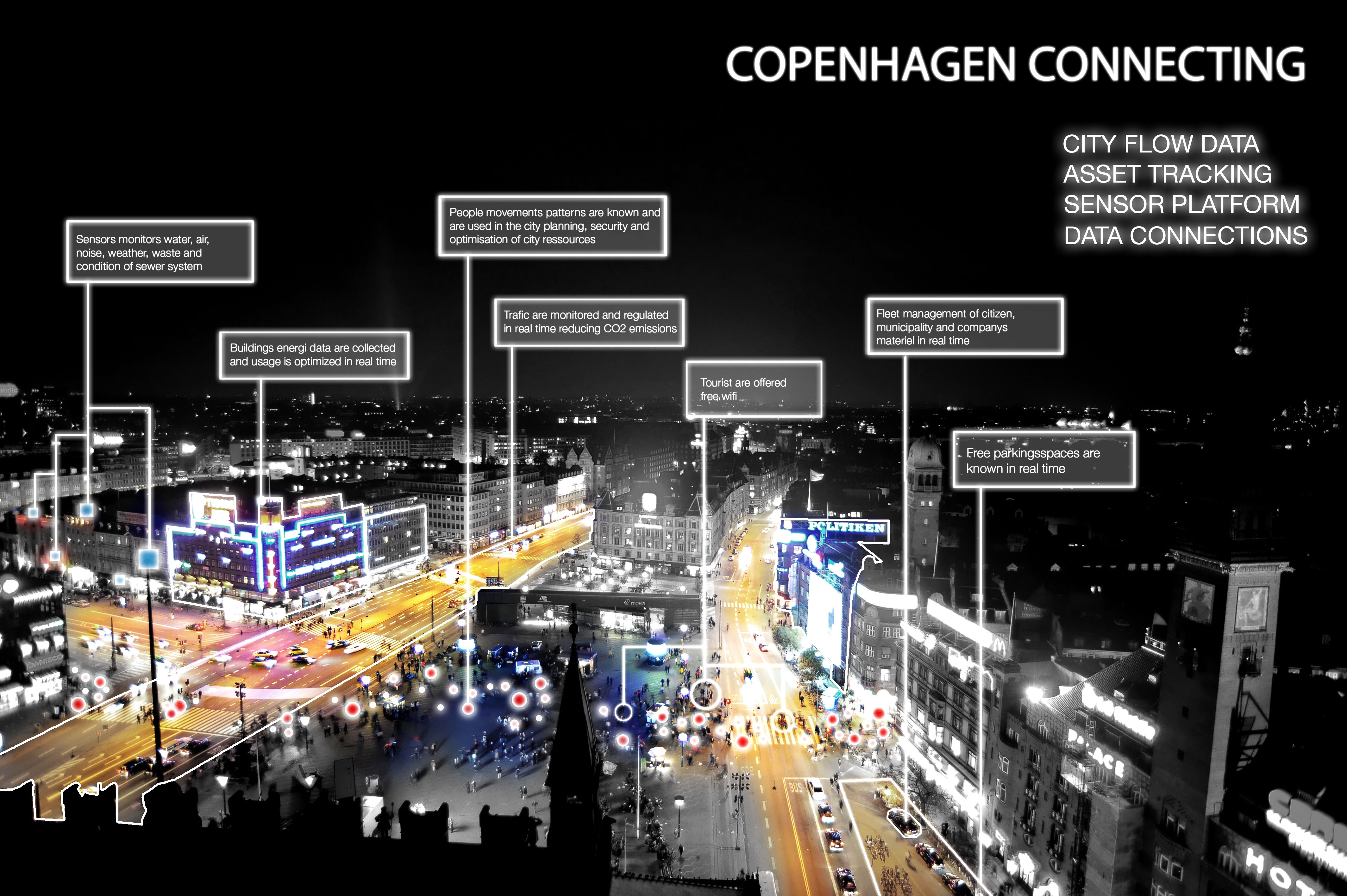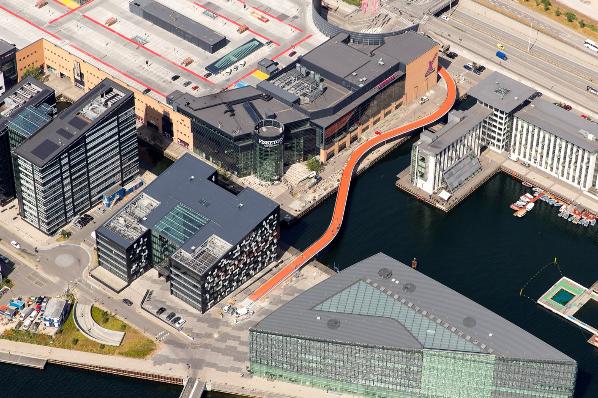Achieving carbon dioxide neutrality
Copenhagen’s number one initiative is to achieve carbon dioxide neutrality. It will be the first capital in the world to become CO2 neutral by 2025. This initiative is a funded climate plan where all of the political parties are in support. In achieving this goal, Copenhagen is looking into the energy management of buildings, traffic issues, and fuel and energy consumption.
Huge investments have been made into cycling and public transportation. Currently, a cycling highway from the suburbs to the city is being built, so that the bikes do not have to stop and will have a green light throughout. Specialized lighting and GPS and wireless systems will fully support the biking transition. These systems can even calculate the amount of money being saved.
Investment into cycling is encouraging people to be healthier; a lot of money has been saved on healthcare costs. A very important aspect in consideration is people’s quality of life, their livability.. Copenhagen is smart because it has a very political leadership that is really working towards achieving a people orientated city and its high quality of life agenda.

Awarding Smart Cities
The Smart City Expo is a yearly event taking place in Barcelona. The World Smart City 2014 award was given to Copenhagen for the project Copenhagen Connecting; which is a part of Copenhagen that has been developed into a smart area where everything is wireless based. It is a test area for new technology in terms of traffic management, lighting, parking solutions, and waste management; everything in that area is connected with sensors, the data is analyzed, and with it the system is optimized. The number of bikes and cars parked in that area is known, as well as the amount of waste, pedestrians, and the buildings’ heat production. Everything is connected into one system in order to analyze which solutions are the most: sustainable, money saving and energy efficient, which will then be incorporated into the rest of the city. It is based on close collaboration and innovation partnerships with investors, private stake holders and universities.
Two big investors have entered Copenhagen in 2014; Cisco has selected the city as one of their lighthouse programs. They are investing a lot of money into smart solutions by managing energy and traffic data. Hitachi is another example which set up a European ID center for big data in Copenhagen which recently opened in November 2014; they work directly with health data from hospitals and universities in order to understand how to develop next generation solutions for aging people and people suffering from a chronic disease. The smart agenda attracts big global companies to set up ID and innovations.
Investing in Smart Cities
Large private investors are developing some of the new big areas in Copenhagen, like the new northern harbor which promotes clean healthy water. It is a totally new part of the city where there will be around 40,000 people living and working over the next 20 years. The big areas of development are co-created between the municipality, and many private investors are entering the market. Investors and developers have to comply with a large list of criteria in order to achieve this CO2 neutral city. Every month, 1,000 people move to Copenhagen, so in order to become CO2 neutral, regulations must be very strict. Making a city smart demands a lot of smart real estate investors, the building code they have to adhere to is also very strict. Copenhagen uses a district cooling system; rain water is re-used in order to be energy efficient. Even some types of housing will have this economically friendly all-in-one system; providing heating in the winter and air-conditioning in the summer without using any electricity at all. There is also an incineration plan, to burn all of the city’s waste.
There is a lot of demand among real estate investors but great opportunities to showcase new technologies and work together with innovative companies are available; with building management systems, or energy management systems. Many of the companies present are interested in the district cooling system, which is also very cheap and efficient.
Foreign companies are entering our real estate market, like those from the UK and Germany. Mostly made up of architects, engineer companies, and investors, they are interested in construction and ownership of profitable and sustainable buildings and building. Student housing is a very profitable market as we offer a five year fixed state tenure to all students. Therefore, all young people who are studying have an income and they can all pay rent that is affordable. Copenhagen is growing; investment is socially secure making it a very stable market and economy to invest in.
The full article is in our Europe Real Estate 2015 reference book. Purchase the book in the webshop















